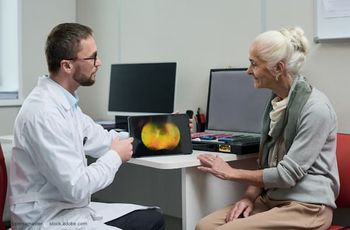
Luxa Biotechnology announces clinical trial results for treatment of AMD
Luxa Biotechnology reveals promising phase 1/2a trial results for RPESC-RPE therapy, showing safety and potential vision restoration in patients with dry AMD.
Luxa Biotechnology LLC announced results from its phase 1/2a clinical trial titled Safety and Tolerability of RPE Stem Cell-Derived RPE (RPESC-RPE) Transplantation in Patients with Dry Age-Related Macular Degeneration: Low-Dose Clinical Outcomes.1 The results
Luxa is a clinical-stage biotechnology company developing novel adult retinal pigment epithelial stem cell (RPESC) therapies for dry
The main objective of the open-label phase 1/2a clinical trial (
RPESC-RPE implants RPESC-RPE-4W cell suspensions in 3 dose cohorts: cohort 1 (50,000 cells), cohort 2 (150,000 cells), and cohort 3 (250,000 cells).3
Cohort 1, composed of 3 worse-seeing patients with best-corrected visual acuity (BCVA) of 20/200 to 20/800, assessed by reading the standardized Early Treatment Diabetic Retinopathy Study (ETDRS) eye chart, completed its low-dose interventions.3 Six patients received a subretinal suspension of 50,000 RPESC-RPE-4W cells, and no significant inflammation, tumor, or product-related serious adverse events were observed or reported.1,3 Patients with better baseline vision showed more modest gains (+3.0 letters at 6 months).1
“The results from cohort 1 demonstrate the potential of RPESC-RPE-4W not only to restore vision in patients with severe vision loss but also to benefit those at earlier stages of diseases,” Keith Dionne, PhD, CEO of Luxa Biotechnology, said in a press release.
BCVA in the 3 worst-seeing patients in group A improved by an average of +21.67 letters from baseline at 12 months, while 3 better-seeing group B patients improved by an average of +3.0 letters at 6 months.3 The positive safety and tolerability outcomes for low-dose cohort 1 enabled dose escalation to mid-dose RPESC-RPE-4W therapy for dry AMD, the study authors noted.3
“We are excited to continue advancing our clinical program, which recently received regenerative medicine advanced therapy (RMAT) designation from the FDA as a potential new regenerative therapy for dry AMD, a leading cause of blindness with no currently approved vision-improving treatments,” Dionne said.1
References
Luxa Biotechnology announces publication in Cell Stem Cell describing positive clinical results for first-in-human clinical trial for dry AMD therapy. Morningstar. September 17, 2025. Accessed September 18, 2025.
https://www.morningstar.com/news/business-wire/20250917979431/luxa-biotechnology-announces-publication-in-cell-stem-cell-describing-positive-clinical-results-for-first-in-human-clinical-trial-for-dry-amd-therapy Safety and Tolerability of RPE Stem Cell-derived RPE(RPESC-RPE) Transplantation in Patients With Dry Age-related Macular Degeneration (AMD). ClinicalTrials.gov. Updated July 24, 2025. Accessed September 18, 2025.
https://clinicaltrials.gov/study/NCT04627428?term=NCT04627428&rank=1 Rao RC, Arduini BL, Borden S, et al. Safety and tolerability of RPESC-RPE transplantation in patients with dry age-related macular degeneration: low-dose clinical outcomes. Cell Stem Cell. Published online September 16, 2025. doi:https://doi.org/10.1016/j.stem.2025.08.012
Newsletter
Keep your retina practice on the forefront—subscribe for expert analysis and emerging trends in retinal disease management.




























